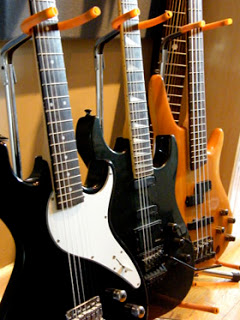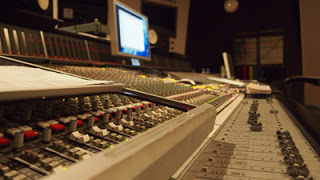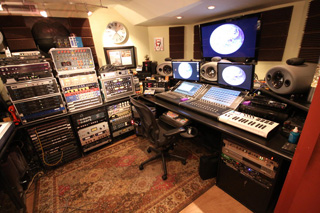- Track descriptions – too braggy
- Track descriptions – too specific
- Track descriptions – too descriptive
- Examples of good descriptions
- Keywords
- Don’t list common instrument names in the keywords field
- Don’t just copy your keywords from one track to the next
- Don’t forget to include alternate forms of your keywords
- Feel free to include “music” after some of the keywords
- Conclusion
This article is meant for the many talented and wonderful music composers / artists who regularly submit music for publishing by Shockwave-Sound.
One thing that we all have in common is that we want our music to be heard, licensed, and used in media. Media producers these days are looking for music for a wide variety of different projects; from casual games, video games, little YouTube clips, amazing nature videos, up to full production feature films and TV commercials.
How do media producers (customers) find the music they need? There are millions of tracks out there. Some are great, some not that great. But even if your track is really great, what good is that, if your track just disappears in an ocean of other tracks — or even worse, in a soup of mediocre tracks presented on a page with annoying titles and bad descriptions?
Making headway as a composer/artist, producer, contributor of music tracks to the music licensing business, relies on spending a little bit of thought into how your tracks are presented to potential listeners, before they have even heard the first note. From the very title of the track, through to the on-screen description and the behind-the-page Keywords that make up the track’s ability to be found in user searches, musicians these days are forced to not only be good at writing and producing music – but also to understand the basic psychology of customers looking for music tracks.
Let’s start with…
Track descriptions
Too braggy:
“This feel-good dance track will have you going in no time! Packed with energy and loaded with awesome sounding synths, this is a really great energy super-pack that will really get your audience going! Huge drums kick and drive behind sizzling layers of synths and bass. This track will be suitable for lots of different media projects!”
If you’re writing like this, you are spending too much energy on trying to make this a really great description and trying to convince people reading it that it’s the right track for them. With a good track, the music will brag enough for itself – you don’t have to brag in the description. Instead, be neutral, short and to the point: “This electronic dance track has a high level of positive energy throughout. Feelgood / Dancing / Celebration”. THAT IS ENOUGH. 🙂
Too specific:
“Imagine yourself on the white beaches of a paradise tropical island, with a cocktail drink in your hand and the sun setting behind the ocean waves….”
Don’t try to weave exact images for the readers, because you are only distracting the customer/user from the possibility of imagining this piece of music in their own production. By writing something like the above, you are setting your music in connection with a very specific visual image, and this image will 99.999% certainly not be the scene that the customer needs a music track for. So you are in a way excluding your music from being imagined inside the scene that the customer is actually looking for a track to go with. Instead of the above, just write “A romantic track with a sense of relaxation and natural beauty. Hint of tropic / island paradise.” This way, you are leaving it open for the user/reader to imagine the track within their scene – not yours.
Too descriptive:
“This track starts with a simple choir melody. Then the strings join in and play in unison with the choir. Then some big drums start pounding and after a while they rise in intensity. The energy then drops and a mystical harp starts to play. Then the drums come back in and start to play a faster rhythm…”
Well, you get what I’m trying to show here. This is a description that quite literally explains and describes what the track does as it goes along, and it’s just no good. There’s no point to this. I mean, if something very drastic happens at a certain point in the track, you are allowed to mention it. For example, at the end of the description you can add one sentence such as this: “The intensity picks up and reaches a climax at about 1:30.”
Examples of good descriptions:
“Quirky and humorous, yet hard hitting Hip Hop piece, with cheeky samples, big beats and cool cuts.”
“Modern and uplifting indie soundtrack piece, with airy wordless vocals and positive strings. Builds strength and power to a rousing finish. World fusion feel.”
“An uplifting pop-rock track with multiple guitars, drums, bass and subtle piano melodies and a very slight country feel. Inspiring / Heartening / Motivational.”
As you can tell from the above examples of good descriptions, actually, these are easier to write than the more fanciful and flamboyant descriptions that some of you are trying to write. Keep it simple. Keep it neutral. Short, to the point. Notice at the end of the last example, it’s not even a sentence. You can add something like this to the end of your description: “Inspiring / Heartening / Motivational.” If you feel that you simply want to describe the track with a few more words than you have written, but you don’t wish to actually write any more full sentences. I often do it like that. Here’s another example:
“Pop / Drum’n Bass track with a reflective synth and piano heavy track with a fast, uptempo feel. Light and springy. Soft, but also active. Dreamy, Heavenly, Positive.” — Note the additional three descriptive words added at the end, after the full sentences are done.
Keywords:
Please supply at least 30 different keywords / key phrases for each track.
After we receive the materials from you, we here at Shockwave-Sound will also add to these. We spend 5-10 minutes listening carefully to the track and write down everything we can think of, that you haven’t already written. We then end up with a keywords / key phrases field that’s the result of two people trying to think of everything that customers will search for, when it will make sense for them to find this track — and usually the result is pretty good.
Don’t list common instrument names in the keywords field
Even if your track contains guitar, bass, drums, synth etc., do not write “Drums, Guitar, Synth” etc. into your Keywords field. There is no point. There are 20,000 tracks and nearly all of them contain drums, synth, bass, etc. There is no chance that a customer will come to the website, type “bass” into the search field on the track, and this will bring up your track, which turned out to be the perfect track for the customer because he searched for “bass” and your track contains bass. Try to “think like the customer” a little bit and imagine what you would search for, if this track is what you’re looking for. It’s not going to be “bass” or “guitar”.
You can write instrument names into the keywords field if the track is truly defined by the sound of that one instrument. An example of this can be “hang drum” which has a very specific sound, or perhaps “bagpipes” or “didgeridoo”. These are special instruments which, conceivably, a user could come to the site and make a search for. And even then, don’t include it in the keywords if it’s only just used in the background, as part of the overall orchestration of the track. The only case in which it will be right to bring up your track in the search result after a customer has searched for “didgeridoo” is if your track really features the didgeridoo, prominently. Because somebody who comes and makes a search for “didgeridoo” is actually looking for a music track where the didgeridoo is very dominant.
Don’t just copy your keywords from one track to the next
Most of you will submit a batch of tracks that are a bit different, and even though you’ve found a few keywords that you think are nice (like “corporate”, “advertise”, “beauty”, “background”), don’t just automatically include these with every track. Consider each one for every track and consider if it’s suitable for that track. I mean, the entire concept of searchable keywords will simply fall apart if “advertising” is added as a keyword to every single track. What point is there then, in anybody searching for that keyword?
The only circumstance in which we accept keywords just being copied from one track to the next is if you have worked on a batch/collection of tracks which really are very similar. For example, we hired you to produce a collection of deep-house tracks. All have exactly the same mood and feel. In this case we will accept some “copied” keywords fields.
Don’t forget to include alternate forms of your keywords
If you write “Motivating”, don’t forget to also include “Motivational”. If you include “Inspiring”, don’t forget to also include “Inspirational” and “Inspired”. Same with Happy -> Happiness. Joy -> Joyful. Cheery -> Cheerful -> Cheer -> Cheery. Celebration -> Celebrate -> Celebratory. Victory — also include “Victorious”. And so on. Some “combined words” will be spelled in one word by some users, but in two words by others, so include both. Examples of this will be “Feelgood, Feel good, Carefree, Care free, Lighthearted, Light hearted”. And so on.
Feel free to include “music” after some of the keywords
Some customers come along and they do searches like: “feelgood music”. This will not be found if you simply have “feelgood” in your keywords. So, within reason, feel free to include something like this:
“feelgood, feelgood music, dancing, dance music, exciting, excited, exciting music, pumped, pumped music”. If somebody comes along and searches for one of these words with “music” after it – in this example, maybe somebody searches for “exciting music” – your track will be found. Use it.
Conclusion
I hope this has been helpful. We’ve all seen stock music websites with an “open for all” track upload and track configuration policy — where anybody, amateur or professional, English speaking or not, can just upload their own music, provide their own description, and it just goes out on the site, in front of customers. It’s like taking any musician off the street (talented as he may well be!) and put him behind the counter in your store, in charge of presenting products to customers. Madness. 🙂
Shockwave-Sound.com is not such an open, “free for all” type of place. Everything that goes out in front of our customers here is actually checked, heard, descriptions read and corrected, keywords looked and and added to as needed. Having said that, we too require our composers/artists to submit Descriptions and Keywords (along with BPM tempo and writer information) along with their track submissions. And the better content you can deliver — musically and description wise — the more sales you will achieve.
Good luck!








